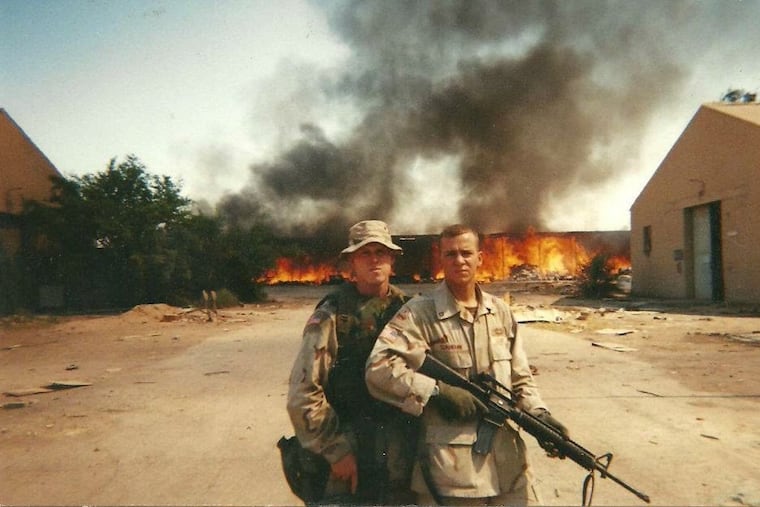Iraq vet: I feel like the war was just yesterday | Perspective
"Thank You for Your Service" does not allow viewers to escape the harsh and factual circumstances.

I served in Iraq from 2003 to 2004 as an infantry team leader. I have been home for quite a while. However, every morning when I wake up, I feel like the war was just yesterday.
Many Vietnam veterans have told me that it will always be that way. I think they are right.
It does not mean that all war veterans are the “walking wounded.” Many move on and live happy and productive lives. At the same time, many spend years struggling to reintegrate back into society. This is especially true among those who experienced and participated in serious combat situations. The main obstacle for veterans readapting to their prewar lifestyles is an inability of modern-day society to understand the burdens of war carried by our veterans. This is true in the family, workplace, friendships and even casual acquaintance.
As an Iraq veteran, I have experienced the damages of war. I have seen it affect fellow soldiers along with the civilians of Iraq. For years I maneuvered through life feeling isolated from family, friends, and my community. I wore a mask, as I felt that nobody could understand me besides my infantry brothers. As the years went by, I reached the point where I shut out the world. When one reaches that point, there is no place to go and there is no way out. It becomes your own personal hell and prison. There is nobody to confide in out of fear of appearing weak or like a non-hacker.
All this even though I had already fought the war and was honorably discharged. I am educated and had worked my entire adult life. It is not like I had anything left to prove. Everyone around me seemed to be flourishing and on a path of upward mobility. I felt like my life was a bottomless pit. This situation is not unique to me. It is just one of a multitude in the combat veteran community. Most veterans remain silent about their experiences and appear high functioning. Nobody seems to care until a veteran reaches a boiling point and breaks down. Even then, the only people affected are those who know the veteran. To the rest of the world, ignorance is bliss.
Last Friday, I saw Jason Hall’s Thank You for Your Service. It’s the story of Adam Schumann, who is trying to rebuild his life after his third tour in Iraq. Needless to say, Adam was fighting an uphill battle.
Adam and I served together in Iraq during his first tour. The movie has other characters experiencing similar raw deals. The movie could not be more transparent or realistic.
Every day we lose 22 veterans to suicide. Veterans have difficulty finding jobs, as combat is not a transferable skill to the workplace. Veterans are left in financial despair. Marriages end, and friends become strangers. Some veterans drown out their demons with drugs and alcohol while waiting to receive care from VA facilities. Homeless veterans roam our streets hoping for meager handouts just so they can eat. There is a major socioeconomic disparity among our veteran population. I certainly never served alongside a trust fund baby. Post traumatic stress disorder, traumatic brain injury, and survivor guilt leave our combat veterans on their own personal battlefields.
Thank You for Your Service creates a drawbridge from the military population to the civilian population. It gives veterans a new voice. Adam Schumann’s story represents many stories of our service members who have risked it all for this country.
Veterans do not want pity from the American people. Veterans know when they volunteer for military service that they write a blank check for their lives. The only expectation is that those who live through war can return home to a welcoming and understanding society. After watching this movie, I finally felt home. My hope is that this movie will help remove negative and misguided stigmas placed on veterans in terms of mental health.
John Bruhns is an Iraq War veteran and a Philadelphia native.